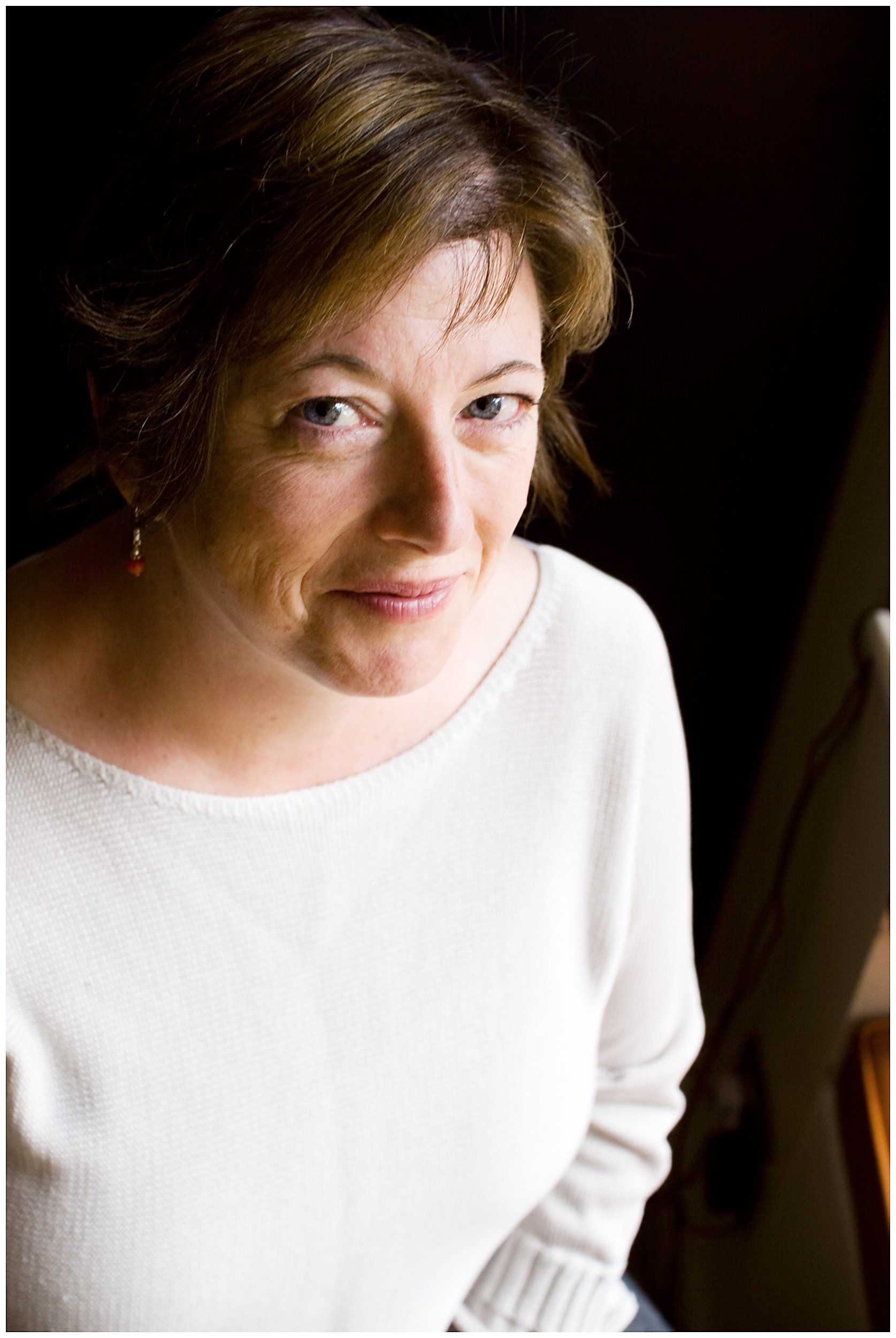Our next event, presented in partnership with The Centre for New Writing at the University of Manchester, features the launch of Vona Groarke‘s wonderful new book, the single-volume personal essay Four Sides Full. One of the leading Irish poets of her generation, Vona has published seven acclaimed collections and is the editor of Poetry Ireland Review. We caught up with her to ask about writing nonfiction, the book and her favourite memoirists, critics and essayists.
As someone who has published several collections of poetry, why did you choose on this occasion to write in the personal essay form?
Allowing for the fact that a collection of poems about picture frames would have been tough going, there’s something about the idea of starting with a topic or subject-matter that seems inimical, to me, to the notion of a book of poems. I always think that the least interesting aspect of a poem is what it is about, so having a full collection that would be so committed to the about would not have sat well with me. It’s a prose approach and so, prose it had to be, at least for the most part. In a practical way, the history element of the book, the exploration of the historical narrative of the frame, would necessarily have been on very poor terms with the lyric impulse. What few poems there are (framing the body of the book) jump headlong into metaphor and simile – but you can’t accommodate history in that frame: not faithfully, anyway.
Drifting between lyric prose, memoirish passages and more critical writing (and bookended with poems), there is a kind of in-betweenness to the book I find really appealing. Do you think the way a piece of writing is categorised has an effect on how we read it, who reads it, how it is perceived?
I do. One early reader advised me to remove the poems on the grounds that, being the opening bid, they’d put most readers off. But I am a poet, and the slip and fluidity of a poem – its formal slyness – is precisely what attracts me. To me, writing about a multiplicity of frames – historical, literal, metaphorical, or abstract – in the single frame of a journalistic descriptive register would have been entirely counter-intuitive. I don’t think I’m alone: I teach classes on picture books – books (poetry or prose) that combine words and images in a genre-defying way. I like how they defy being categorised: as a working approach, that greatly appeals to me.
How did you approach the structure of Four Sides Full? It seems to start out more scholarly and research-driven and gradually become more personal. Was this your intention, or did it happen naturally in the writing process?
I wrote a draft that was just over half its final length. It was mostly historical material, with a very tentative nudge towards other readings of the frame. When its first reader suggested making it more personal, I was, frankly, horrified: I’m really not that kind of writer. But then I saw ways of leaning into the personal without being confessional. That distinction was very important to me. Once I allowed myself to make it, I found the writing of the more personal passages a whole lot easier. I’m glad I included them: without them, my take on the idea of the frame would have been a thinner thing – they allowed me to come at the idea from many different angles, and to see it in various ways.
It is rare to read a woman writing so candidly about solitude in middle age or the confusion of the menopause. As you note in the book, we are taught to be silent on these matters. Was it a different experience to write so straightforwardly of your own experience in the essay form, compared to writing about personal experience within poetry’s more abstract frame?
I agree, it is rare, and I reckon the lack of material there made me want to write into that gap. But those parts of the essay that come really close to the bone, I’m not altogether sure I wanted to write straightforwardly about them. I still, I think, depended on metaphor, on poetic strategies. Perhaps I’d make a distinction between the factual and the emotional: the former I can look directly in the eye, but the latter? I think maybe I flinched there, now and then, had to take the kind of sidelong view I’ve learned to fashion in my poems.
Who are some of your favourite writers of personal essays or lyric prose?
Virginia Woolf, Three Guineas (and Rebecca Solnit’s essay, ‘Woolf’s Darkness: Explaining the Inexplicable’); Julian Barnes, Levels of Life; Rupert Thomson, This Party’s Got to Stop; Edmund de Waal, The Hare with Amber Eyes; Edward Hoagland, ‘The Courage of Turtles’; Lauren Elkin, Flâneuse; Olivia Laing, The Lonely City; Dan Beach-Quick, Wonderful Investigations; Tomas Espedal, Against Nature; Patrick McGuinness, Other People’s Countries. And to crown them all, it would have to be Nabokov’s Speak, Memory.
– Kate Feld
_
See Vona read from Four Sides Full alongside Unmastered author Katherine Angel on Monday 6th February, 7:30pm at the John Thaw Studio Theatre at the University of Manchester. Tickets are £7/5 and can be purchased from QuayTickets here.

